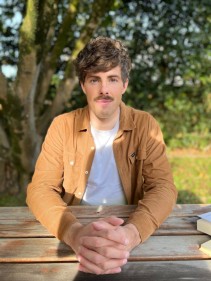Timothée Parrique

Researcher at the School of Economics in Lund University, Sweden
Timothée Parrique is a researcher at the School of Economics in Lund University, Sweden. He holds a PhD in economics from the University of Clermont Auvergne and Stockholm University. Titled “The political economy of degrowth” (2019), his dissertation explores the economic implications of the idea of degrowth. Tim is also the lead author of “Decoupling debunked – Evidence and arguments against green growth” (2019), a report published by the European Environmental Bureau (EEB). He blogs at https://timotheeparrique.com and tweets at @timparrique.
Panel Debate: Exploring the future of research and Science: what are the opportunities and challenges of degrowth?
Our contemporary society has been built and evolved for several centuries in the context of the Holocene. Since the last fifty years, we have entered the Anthropocene, changing the long-term conditions of life on Earth. Yet, even if we can agree on the fact that socio-economic models of Western societies have to evolve to avoid going above planetary boundaries, we rarely discuss the impacts on research and Science if we were to switch for degrowth models. Indeed, if the whole society starts implementing degrowth at a large scale, what would be the implications for research and Science ? In this panel discussion, we will investigate the opportunities and challenges of degrowth on research and academic practices, e.g., at the individual, collective, and institutional level.
In order to generate the questions for the panel, participants will experience a collective intelligence activity known as ``World Cafe''. By proposing several tables of discussion focusing on a specific aspect of the panel topic, this aims at stimulating all participants to actively take part to the debate by formulating key questions together. We will turn the topic upside down by touching upon the KPI in research, the neutrality of Science, or the definition of post-growth research, just to name a few.
In order to generate the questions for the panel, participants will experience a collective intelligence activity known as ``World Cafe''. By proposing several tables of discussion focusing on a specific aspect of the panel topic, this aims at stimulating all participants to actively take part to the debate by formulating key questions together. We will turn the topic upside down by touching upon the KPI in research, the neutrality of Science, or the definition of post-growth research, just to name a few.
Watch the panel here !
